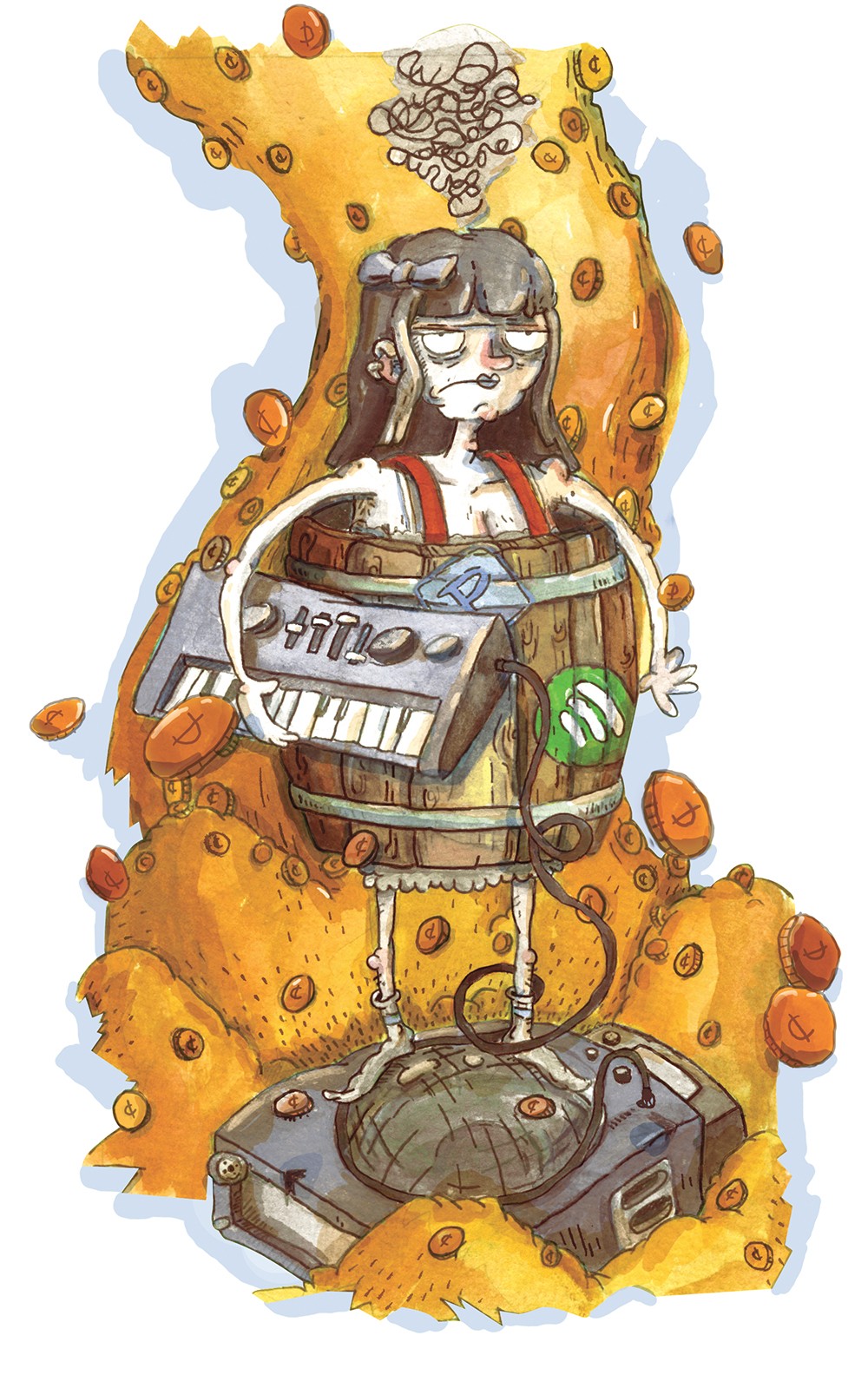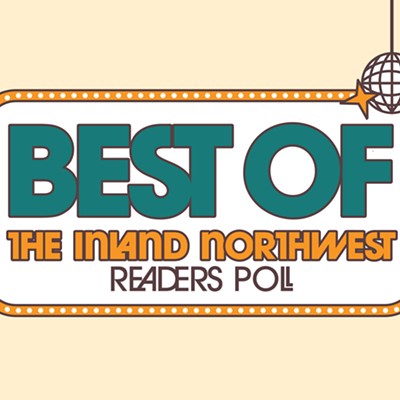It's never been easier to listen to music.
It's also never been easier for up-and-coming artists, including Inland Northwest-based acts, to disseminate their work to listeners. With dozens of online, on-demand music streaming services, both free and subscription-based — Spotify, Rdio, Pandora, SoundCloud, Rhapsody, even YouTube — we've entered an age of unprecedented access to music.
As modes of music listening trend in this direction, concerns are also being raised as to whether musicians are being fairly compensated for their work, in contrast to profits from a physical or digital album sale. Most ad-free subscriptions to streaming services cost, on average, less or the same per month as one digital album purchase, about $10, from iTunes.
Making global headlines several months ago was a decision by the hit-making British rock group Radiohead to pull several albums from Spotify's catalog, one of the top online streaming services. The move prompted a flurry of editorials denouncing the way the company compensates artists and rights holders. According to Radiohead's Thom Yorke, the band took its music off Spotify to protest the miniscule amounts — as low as thousandths of pennies per play — it pays newer, up-and-coming artists. Spotify didn't respond to the Inlander's requests for this story.
For many musicians based in the Inland Northwest, making their original music available on growing services like Spotify is all about the positive exposure to be gained. But for musicians trying to make a living income from their work, streaming services can be detrimental, which is how Kent Ueland views it.
Ueland is most recognizable as frontman of the local, dark folk group Terrible Buttons, but also has a solo project, The Holy Broke. Stressing he's not speaking for all members of his band (Terrible Buttons' music isn't currently on streaming services or iTunes, just independent artist hub Bandcamp), Ueland says he believes services like Spotify, because of its pay structure, actually prevent artists from becoming successful and surviving as musicians long-term.
"I think Spotify is a big reason people don't hit the road as much as they should, because it's hard to tour," he says. "If you're trying to make a tour not a vacation, you're hoping that a couple people bought the CD, and then a couple [more] people hear it and buy it online."

Groups that simply enjoy writing and playing music as a cathartic, creative outlet, like rockers the Camaros and hardcore outfit Losing Skin are, in part, satisfied with the opportunities streaming services offer to be discovered by new listeners locally and beyond.
For Losing Skin, having music on Spotify, iTunes, Amazon and other online services was more a choice of convenience, since their label, Blasphemour Records, handled the digital distribution of their newest album I: Infinite Death, released in August. If the label hadn't managed the distribution, band member Matt Johnston says they still would have wanted to get the album onto services like Spotify.
"If someone hears about us, it just makes us that easier to find, and if you're already using the service it's much more convenient than searching Google," adds Alex Boston, Losing Skin's lead singer.
Johnston and Boston both subscribe to online music streaming services, though in many cases they say they prefer to purchase other artists' work if it's something they'll listen to often.
"To me, mp3s are disposable, and it has more substance when I have to spend money to have it in my hands," Boston says. "If it comes down to 'I don't want to offer my art for an online service for people to listen to because I'm not getting paid,' you're losing the purpose of why you record music in the first place."
Losing Skin hasn't yet received compensation from plays its album has received since being released, because digital music services disburse royalties quarterly. Whatever they do earn, the band plans to funnel back into other projects.
The Camaros' first full-length record Ladies? was released and added to Spotify's catalogue just short of a year ago, but because the income from any plays via Spotify and other services they're on have been so nominal, the group admits they don't check their account often, or even know how much it's profited them. Like Losing Skin, money made will go back into the band's next record.
"If we were trying to make a living at this, I think we would see Spotify as something that would be difficult to combat, but we're just trying to get people out to see our shows," says Camaros guitarist Eric Woodard.
Lead singer Mark Robbins wonders, though, how much being on Spotify has resulted in listeners not buying the Camaros' album, knowing it's available to stream online.
"There is a certain amount of street cred I give to bands who don't put their music on those [services]," Robbins says. "I think that's kind of cool. They don't want people to have easy access to it, they want people to seek it out and listen to it." ♦





















